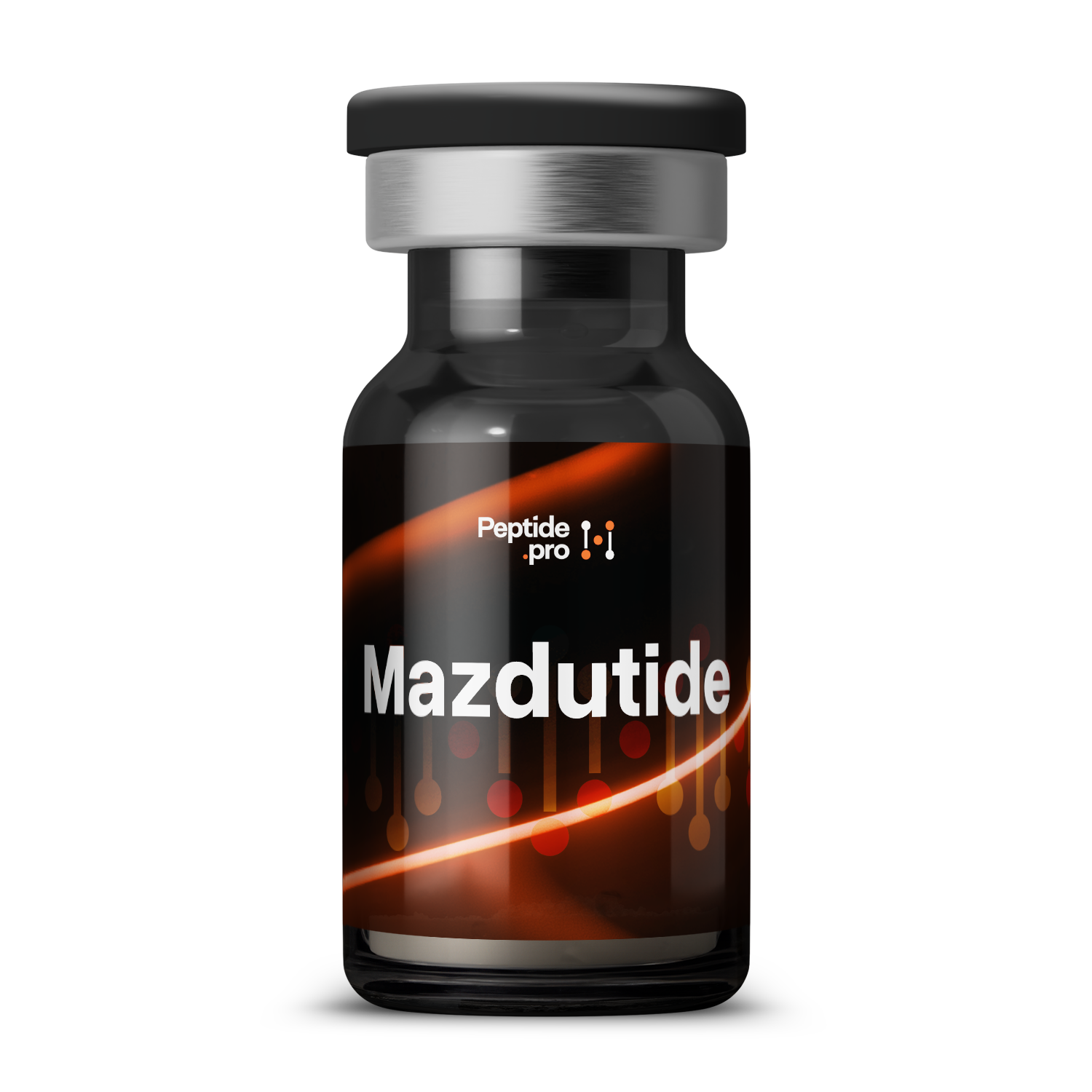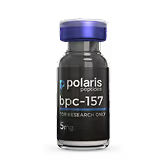Mazdutide
Mazdutide is a designer peptide that combines actions of two natural hormones to both curb appetite and boost calorie burning. It helps users feel fuller and increases the body’s use of stored fat for energy. Early studies show significant, sustained weight loss and improvements in blood-sugar control. Researchers are exploring its potential as a dual-action therapy for obesity and type 2 diabetes.
Compound Overview
About the product
The molecule comprises a peptide backbone based on oxyntomodulin’s amino-acid sequence, extended and modified with a fatty-acid (acyl) side chain to bind albumin and prolong half-life. It includes natural L-amino acids and a C-terminal modification to resist enzymatic degradation. Research-grade mazdutide is synthesized by Fmoc solid-phase peptide methods and purified by preparative HPLC to ≥95 % purity. Mass spectrometry confirms its correct sequence and lipid conjugation.
Mazdutide binds to GLP-1 receptors in the brain and gut, reducing appetite and slowing gastric emptying, while simultaneously activating glucagon receptors in liver and adipose tissue to boost energy expenditure. The dual agonism promotes weight loss through decreased caloric intake and increased fat oxidation. It also improves glycemic control by enhancing insulin secretion and reducing hepatic glucose production. Together, these actions address both obesity and hyperglycemia.
The peptide is studied for its combined effects on weight management and metabolic health. In trials, participants experienced meaningful reductions in body weight and improvements in blood-sugar markers. It is being evaluated as a potential therapy for obesity and type 2 diabetes. Further research aims to confirm its long-term safety and efficacy.
Reported adverse events are generally mild to moderate, most commonly gastrointestinal symptoms such as nausea and diarrhea. Headache and injection-site reactions occur in some participants. No serious safety signals have emerged in studies up to one year. Monitoring of liver enzymes and vital signs is recommended during investigational use.
Mazdutide is produced by stepwise solid-phase peptide synthesis, incorporating the oxyntomodulin-derived sequence and fatty-acid modification. After cleavage, it is purified by preparative chromatography to research-grade purity. Analytical testing verifies sequence integrity and lipid attachment. Manufacturing follows peptide-compounding standards.
Mazdutide is available only for clinical trials and is not approved by major regulatory agencies such as the FDA or EMA. It cannot be prescribed outside of research settings. Use is restricted to investigational-new-drug protocols. No commercial products contain mazdutide.
Clinical studies have administered 3–10 mg by subcutaneous injection once weekly. Doses are typically escalated gradually to improve tolerability. No dosing regimens exist outside approved trials. All use must follow study-specific protocols.
- Do follow clinical-trial dosing and safety monitoring guidelines.
- Do prepare patients for potential GI side effects and counsel on nutrition.
- Don’t combine with other GLP-1 or glucagon agonists off-protocol.
- Don’t use outside of ethically approved research settings.
- Q: When does weight loss start?
- A: Participants typically notice reduced appetite and gradual weight loss within a few weeks.
- Q: Is it safe long term?
- A: Trials up to one year show tolerability, but longer-term data are pending.
- Q: Can it be taken orally?
- A: No; only subcutaneous injections have been studied.
For research use only. Not approved for medical use.


